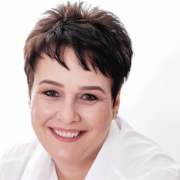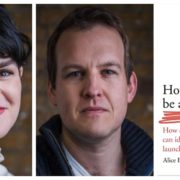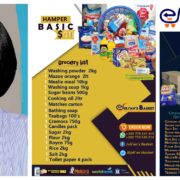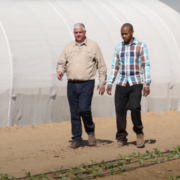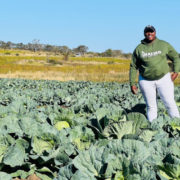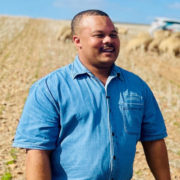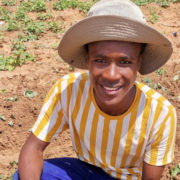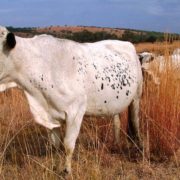Relationship Bankers in Profile / Absa / Jolene Grobler — Lionesses of Africa

Well, two days later, I had an interview with the Branch Manager and before putting pen to paper on my final exam, I had a job! When the Sales Manager phoned me to tell me that I got the job, he said to me that I showed ingenuity and energy when I showed up that day at the branch demanding to see him and that got me the job. So, if I hadn’t gone in and asked for him, my half-page CV would have been just that and I would never have had this career.
I absolutely fell in love with banking after completing my first credit application and it got approved. I saw the impact that it had on the client and how that funding enabled that client to grow his business first-hand. Soon, I realized that my purpose is to create jobs! I always feel that I have to make a contribution in business to enable entrepreneurs to grow so that we can create jobs and support more families financially.
I have a passion for people and building strong relationships. As my career progressed, I continued to find joy in building strong leaders and teams within Relationship Banking that service our clients daily with bravery, passion and a readiness to realize the possibilities on our rich African continent and beyond.
When I look back now, I understand why the Absa Brand resonated with me so strongly. Our brand and purpose is inspired by the African continent’s ingenuity, tenacity, audacity and positivity. Africanacity: The distinctly African ability to always find ways to get things done. It’s the ability to meet every challenge with tenacity. This is the driving force behind everything that we do!
Tell us more about your role at Absa and how you work with entrepreneurs – what does it entail?
My role as the Segment Head is to ensure that I have a team of banking industry professionals and experts who aid in developing and maintaining strong customer relationships, both within Absa as well as with outside clients. We seek out new business opportunities while advising our clients on products or services that best fit their needs.
Each entrepreneur has a dedicated Relationship Banker as the key contact point. Through this Relationship Banker, our clients have access to a large range of industry specialists, from Agriculture, Manufacturing and Wholesale to Retail and Franchise. Each uniquely positioned to give our clients expert advice – not just on funding, but also payments, deposits, protection and support beyond just banking.
A Relationship Banker has a key role to play in the business life of a woman entrepreneur – what kind of support and services do Absa offer women entrepreneurs in the Lionesses of Africa community?
-
At Absa, we support woman entrepreneurs in partnering with them to aid in solving some of the most pressing societal issues that our country faces. We do that by creating more opportunities for us all to grow together.
-
As an organisation, we have committed significant resources to help bridge the gap between our work as a bank and making a difference in our entrepreneurs’ lives – it’s about being meaningful in how we support your business endeavours.
-
In pursuit of this goal, experience has taught us that within the SME sector, solutions that combine different types of SME support tend to work better rather than taking any single approach as a silver bullet.
-
Similarly, we have also learnt that partnerships across multiple sectors that combine a diversity of players increase the likelihood of success. This means that the public sector and the private sector, including the SME sector, jointly have a role to play in developing solutions that enable the SME sector.
From a support and services perspective, our Enterprise Development approach has three crucial pillars:
-
Giving our women entrepreneurs access to funds
-
Access to markets: Absa is in partnership with the Supply Chain Network Portal, which has over 55 000 SMEs on the portal, as well as more than 4 500 corporate buyers generating corporate procurement opportunities on a monthly basis. This online eMarketplace enables corporate and government buyers to easily discover credible local suppliers, and for SMEs to promote their company and connect to potential procurement opportunities.
-
Access to Business Development Support: Since 2011, through our Enterprise Development Centres, we have reached more than 110 000 SMEs with training, mentorships, networking, advisory and coaching services.
Do you have any advice to share with women entrepreneurs who are in growth mode and want to establish good working relationships with an expert such as yourself at Absa?
The message that I would like to share with our women entrepreneurs is that you are not alone in your quest to serve your customers selflessly. There are multiple stakeholders with an active interest in your success as a business. It is in the interest of government, your financiers, and customers that you succeed! In creating a vibrant economy, your success will be paramount. Acquire solid, objective advice and support and by doing that you will contribute to our national goal of creating a growing economy.
Establishing good relationships takes work and it is no different with your banking relationship. To establish a good working relationship with us, I would suggest:
-
Network and keep in touch – forums such as Lionesses of Africa open up this opportunity. It is important to keep in touch and update us on your milestones. Although we have become very transactional in our online approach in the past two years, nothing beats a face-to-face engagement – knowing and understanding your business comes from face-to-face engagements that allows for better exploration.
-
Explain your business plan – if you are clear in terms of where you are heading and you share this with your Banker, they are better equipped to understand your cashflow and would be more likely to recommend solutions that are fit for purpose – this is essential when it comes to your financial wellbeing.
-
When you share information, no matter the difficulties, you are experiencing being open and transparent, because that builds trust and it often leads to better solutions being crafted.
-
It does not matter where you find yourself in your business cycle, having a strong relationship with your bank will be to your advantage in your business journey.

